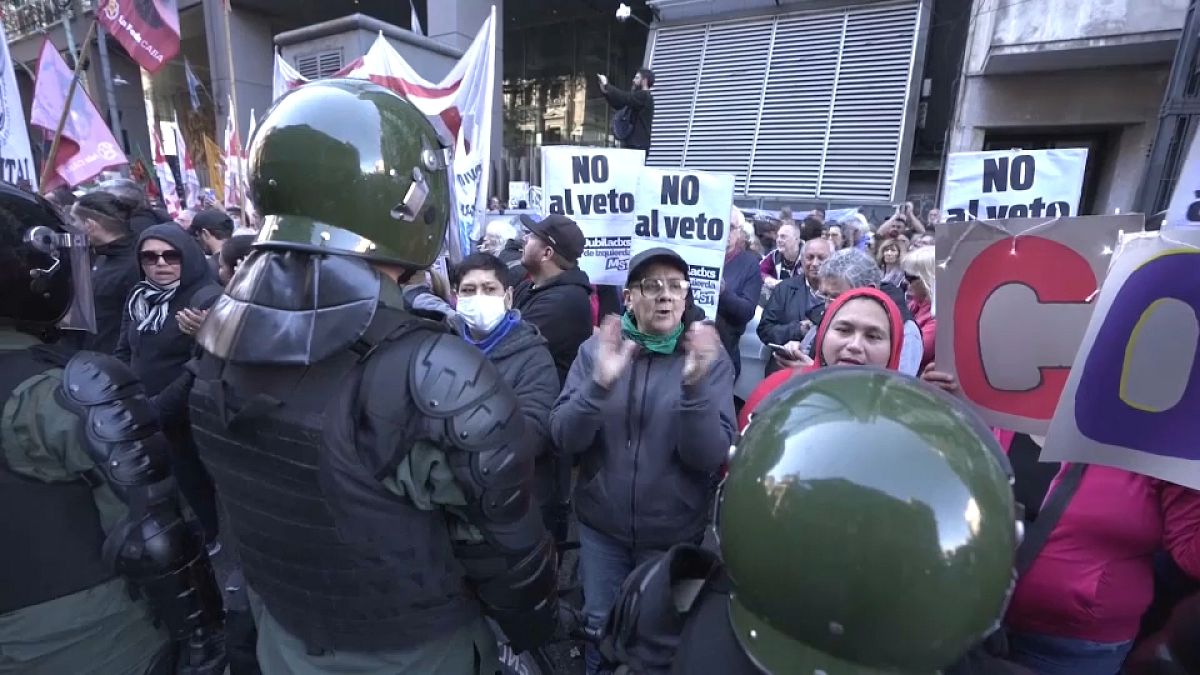The recent vetoed bill, which would have increased retirement benefits by over 8%, has sparked controversy and protests in the country. The current minimum pension of €213 is insufficient to cover the basic cost of essential goods, which now stands at €277 due to inflation being at 263.4%. Demonstrations have taken place, with clashes between protesters and police resulting in the use of pepper spray to disperse the crowd. In the midst of criticism, Milei, a prominent figure, is defending his austerity measures as necessary for economic stability.
The vetoed bill, which aimed to boost retirement benefits, has left many retirees struggling to make ends meet as the cost of living continues to rise. With inflation skyrocketing to 263.4%, the current minimum pension of €213 is no longer sufficient to cover basic expenses, which now amount to €277. This significant gap has left retirees feeling financially insecure and dependent on external support, leading to widespread discontent and frustration among the elderly population.
As tensions rise, protesters have taken to the streets to voice their opposition to the vetoed bill and demand better financial support for retirees. However, these demonstrations have often turned violent, with clashes erupting between demonstrators and law enforcement authorities. In response to the unrest, police have resorted to using pepper spray to disperse the crowds and restore order, further escalating the situation and fueling public outrage.
Amidst the protests and backlash, Milei, a key figure in the government, has come under fire for his role in implementing austerity measures that have exacerbated the financial hardships faced by retirees. Despite facing criticism, Milei continues to defend his policies as necessary for maintaining economic stability and preventing further economic turmoil. His stance has only added fuel to the fire, triggering more protests and calls for his resignation or a change in policy direction to better support retirees and address the growing economic challenges facing the country.
The situation has sparked a national debate on the government’s handling of economic policies and social welfare programs, particularly in light of the vetoed bill’s impact on retirees. Many are questioning the government’s priorities and calling for more comprehensive and sustainable solutions to address the widening gap between retirement benefits and the cost of living. The ongoing protests and clashes serve as a stark reminder of the deepening socio-economic divides within the country and the urgent need for concrete action to address the growing financial challenges faced by retirees and vulnerable populations.
As the situation continues to unfold, the government faces mounting pressure to address the grievances of retirees and tackle the underlying economic issues driving the protests. The vetoed bill and its aftermath have exposed the vulnerabilities of the current pension system and highlighted the urgent need for reforms to ensure that retirees receive adequate financial support in the face of rising inflation and cost of living. The government must heed the calls for change and take decisive action to alleviate the plight of retirees and restore public trust in its ability to address the economic challenges facing the country.










